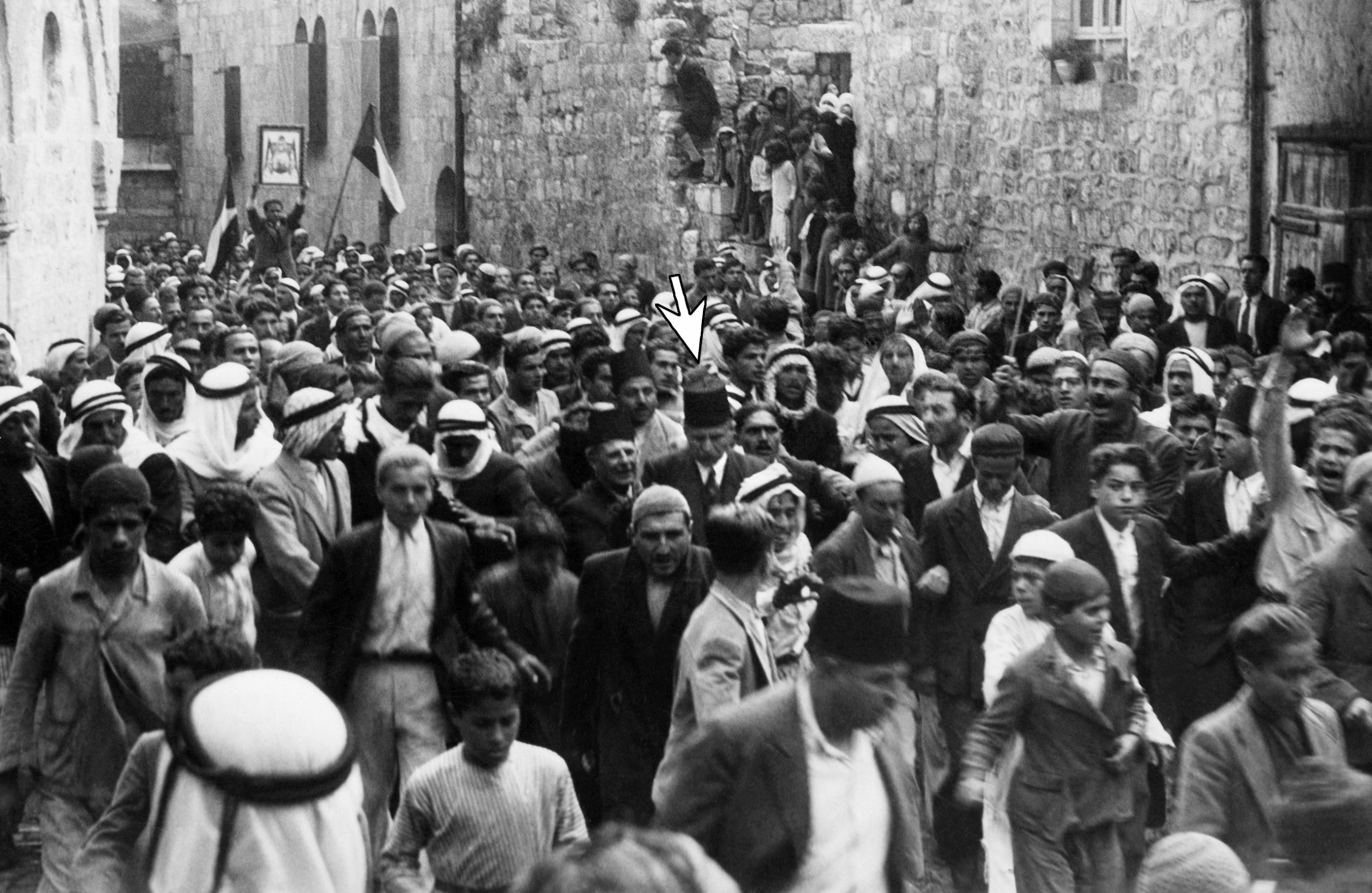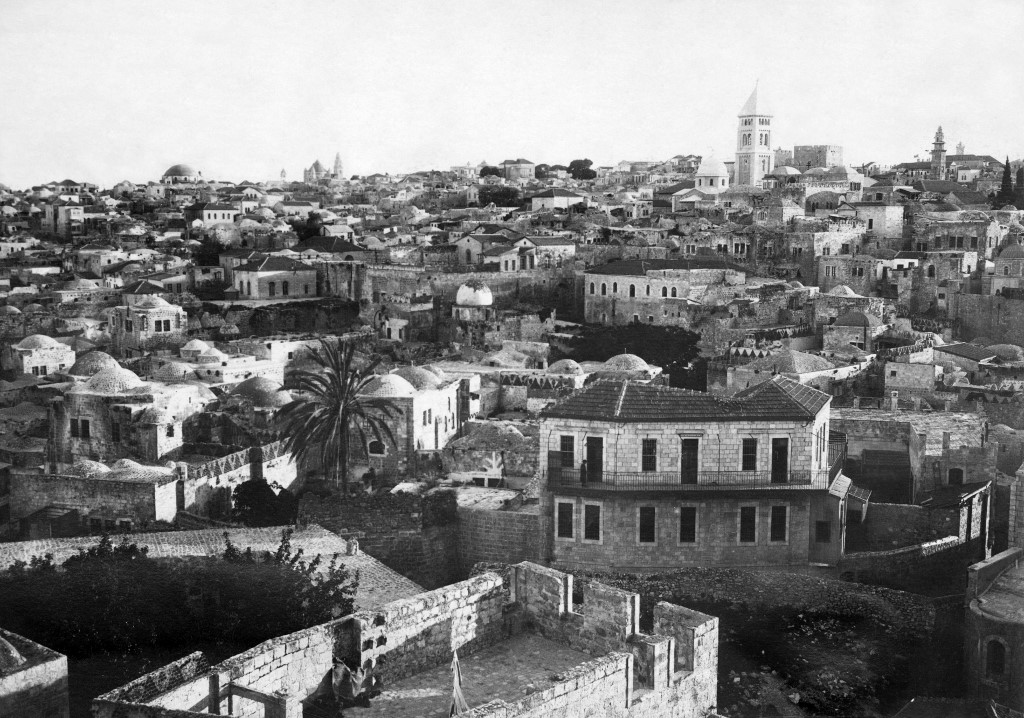Decades of loss: Century-old letters highlight the roots of Palestinian resistance

The start of the Zionist project and the establishment of the first settlements in Palestine at the end of the 19th century began a systematic and deliberate campaign to expel and displace Palestinians from their land.
The Palestinian resistance to these efforts was at times disorganised and limited by financial constraints, but Zionist writings on the subject have not conveyed the true picture of what took place.
Yet, two letters sent by Palestinians in 1890 and 1913 to the grand vizier of the Ottoman Empire in Istanbul shed light on this reality.
Bedouins and Palestinian peasants living in the countryside were the first communities affected by Zionist settlement construction in the 19th century. Harassment and aggression by the settlers escalated in an attempt to expel the Palestinian families, who had lived on their lands for hundreds of years.
Despite their simplistic lifestyle, these Palestinian communities quickly understood the dangers of settler-colonialism
Despite their simplistic lifestyle, these Palestinian communities quickly understood the dangers of settler-colonialism. It was thus unsurprising that the movement to resist Zionist occupation initially emerged from within the peasant and Bedouin communities, whose livelihoods depended on the land itself.
New MEE newsletter: Jerusalem Dispatch
Sign up to get the latest insights and analysis on Israel-Palestine, alongside Turkey Unpacked and other MEE newsletters
From the late 19th century through to the creation of Israel in 1948, many confrontations were documented between these communities and Zionist settlers.
The initial arrival of settlers was sudden and shocking to Palestinian residents. They could not fathom the settlers’ claims that they owned the land, and that the residents would have to leave their homes with their crops not yet harvested. They were the real and practical owners of the land, having ploughed, cultivated and inhabited it for hundreds of years.
By the start of British colonialism in Palestine in 1917, there were about 47 Zionist colonies, centred in the north and middle of the country, built on about 55,000 dunams of seized land.
'Sold to strangers'
In their letter sent in 1890, the Palestinian al-Sataria clan living in Khirbet Darwan complained to the grand vizier about the injustice, harassment and attacks that ensued after the Rehovot settlement was established on their lands.
“The supreme Ottoman state recently sold the land of the Khirbeh to rich people from the homeland. Your faithful servants did not express any objection to that, because the new owners of the land had the knowhow, that we cultivate the farm and have been taking care of it from time immemorial. They neither tried to intercept nor expel us from our places of residence or our farms,” the letter states.
“However, in this case, the farm was sold to strangers who arrived with big budgets and economic resources … They started expelling us from our place of residence and preventing us from ploughing the land.”
Complaints were submitted to the grand vizier against many of the new colonies, showing that Palestinians did not surrender to the status quo, despite their limited capabilities and the substantial economic resources and official backing that the foreigners enjoyed.
Such letters were a declaration by Palestinian residents that they would resist the injustice staring them in the face - part of an organised resistance against attempts to drive them out of their lands and to plunder their rights. The letter from the Sataria clan reveals their understanding of their rights to remain on their land; the state transferring ownership to rich outsiders might give the owner rights to some crops, but not the right to expel those living there.
Critical reading
The letter does not reference the methods used by the settlers to expel and displace Palestinian inhabitants, nor does it mention their own plans to thwart the sustainability of the new colony and thus prevent their own expulsion. But a careful and critical reading of documents written by settlers in Rehovot and neighbouring colonies sheds some light on this.
Many Jewish sources documenting the establishment of these colonies state that the area was empty of its population and ruined, and that the new settlers brought salvation and an opportunity for growth. This was in line with the Zionist slogan of “a land without a people for a people without a land”.
The Sataria clan’s letter categorically refutes this claim, pointing to the residents who had long lived there and cultivated the land.
Other Jewish sources suggest that Arabs in this area were violent aggressors, looting and stealing settlers’ property and failing to respect settlers’ rights to their land. While the Sataria clan considered the ongoing harvesting of crops from their lands to be a legitimate right, the new settlers considered it to be looting and robbery.
'Unique turmoil'
Decades later, in 1913, another letter to the grand vizier was signed by dozens of mukhtars and legal personalities from villages near Jewish colonies, including the villages of Zarnuqa, al-Qubayba, Yibna, al-Maghar and others, without the participation of representatives from neighbouring cities.
The villagers complained about the behaviour of the new settlers, citing “their aggressions against our villages, killing, looting and rape”. Amid this onslaught, the letter notes, “we have become severely agitated and are undergoing unique turmoil, until, may God forbid, necessity compels us to emigrate from our homeland, despite our love and friendship with it”.
Signed by representatives of various villages and towns, the letter highlights the collective danger felt by Palestinian citizens at the time
The letter continues: “Any person from the peasants who passes on the road is grabbed and beaten, and they take from him his clothes and his money. Anyone who challenges them is killed, and they shoot live fire at passersby on public roads.”
Signed by representatives of various villages and towns, the letter highlights the collective danger felt by Palestinian citizens at the time, decades prior to the Nakba. The signatories do not mention how they responded to the harassment by the new settlers, but documents in the Rehovot archive state that residents of Zarnuqa village killed one of the settlers.
Throughout Palestinian areas adjacent to Zionist colonies, farmers and Bedouins spearheaded the fight against colonialism - a fight that continues to this day.
The views expressed in this article belong to the author and do not necessarily reflect the editorial policy of Middle East Eye.
This article is available in French on Middle East Eye French edition.
Middle East Eye delivers independent and unrivalled coverage and analysis of the Middle East, North Africa and beyond. To learn more about republishing this content and the associated fees, please fill out this form. More about MEE can be found here.







